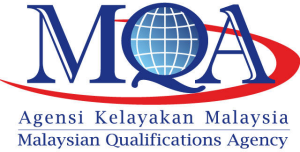Education in Scotland is provided in state schools, private schools and by individuals through homeschooling. Mandatory education in Scotland begins for children in Primary 1 (P1) at primary school and ends in Fourth Year (S4) at secondary school. Overall accountability and control of state–education in Scotland rests with the Scottish Government, and is overseen by its executive agency, Education Scotland, with additional responsibility for nursery schools being the joint responsibility of both Education Scotland and the Care Inspectorate. Scotland's private schools are overseen by the Scottish Council of Independent Schools. Children in Scotland sit mandatory National Standardised Assessments in Primary 1 (P1), Primary 4 (P4), Primary 7 (P7) at the end of primary school, and Third Year (S3) in secondary school, which assist in monitoring children's progress and providing diagnostic data information to support teachers' professional judgement.
This article provides an overview of education in Wales from early childhood to university and adult skills. Largely state-funded and freely accessible at a primary and secondary level, education is compulsory for children in Wales between ages 5-16 years old. It differs to some extent in structure and content to other parts of the United Kingdom, in the later case particularly in relation to the teaching of the Welsh language.
The education system in Northern Ireland differs from elsewhere in the United Kingdom, but is similar to the Republic of Ireland in sharing in the development of the national school system and serving a similar society with a relatively rural population. A child's age on 1 July determines the point of entry into the relevant stage of education in the region, whereas the relevant date in England and Wales is 1 September.
Education in Malaysia is overseen by the Ministry of Education. Although education is the responsibility of the Federal Government, each state and federal territory has an Education Department to co-ordinate educational matters in its territory. The main legislation governing education is the Education Act 1996.

A private school is a school not administered or funded by the government, unlike a public school. Private schools are schools that are not dependent upon national or local government to finance their financial endowment. Unless privately owned they typically have a board of governors and have a system of governance that ensures their independent operation.
Most schools in Macau are private or subsidized schools. As of the 2023–2024 school year, there were 76 schools in Macau, including eight public schools and 68 private schools. Of the 73 schools that offered formal education, six were not a part of Macau's free education network. As of 2006 many of the schools in Macau are operated by Catholic organizations.
Catholic schools are parochial pre-primary, primary and secondary educational institutions administered in association with the Catholic Church. As of 2011, the Catholic Church operates the world's largest religious, non-governmental school system. In 2016, the church supported 43,800 secondary schools and 95,200 primary schools. The schools include religious education alongside secular subjects in their curriculum.

The system of education in Uganda has a structure of 7 years of primary education, 6 years of secondary education, and 3 to 5 years of post-secondary education. Education in Uganda is administered in English. All throughout the levels in the education structure, modules are taught and assessed in English. The government of Uganda recognizes education as a basic human right and continues to strive to provide free primary education to all children in the country. However, issues with funding, teacher training, rural populations, and inadequate facilities continue to hinder the progress of educational development in Uganda. Girls in Uganda are disproportionately discriminated against in terms of education; they face harsher barriers when trying to gain an education and it has left the female population disenfranchised, despite government efforts to close the gap.
The Fundamental Law of Education is a Japanese law which sets the standards for the Japanese education system.

Community education, also known as Community-Based Education or Community Learning & Development, or Development Education is an organization's programs to promote learning and social development work with individuals and groups in their communities using a range of formal and informal methods. A common defining feature is that programmes and activities are developed in dialogue with communities and participants. The purpose of community learning and development is to develop the capacity of individuals and groups of all ages through their actions, the capacity of communities, to improve their quality of life. Central to this is their ability to participate in democratic processes.
The English Language Acquisition, Language Enhancement, and Academic Achievement Act - formerly known as the Bilingual Education Act - is a federal grant program described in Title III Part A of the federal Elementary and Secondary Education Act (ESEA), which was reauthorized as the No Child Left Behind Act in 2002 and again as the Every Student Succeeds Act in 2015. This section is specifically targeted to benefit Limited English Proficient (LEP) children and immigrant youth. The statute states that LEP students must not only attain English proficiency but simultaneously meet the same academic standards as their English-speaking peers in all content areas. Federal funding is provided to assist State Education Agencies (SEAs) and Local Education Agencies (LEAs) in meeting these requirements. In 2011, ESEA Title III awards were granted to 56 SEAs and the average award given to an individual SEA was $12,158,046.

The Ministry of Education is a ministry of the Government of Malaysia that is responsible for education system, compulsory education, pre-tertiary education, technical and vocational education and training (TVET), curriculum standard, textbook, standardised test, language policy, translation, selective school, comprehensive school.
The system of education in Iceland is divided in four levels: playschool, compulsory, upper secondary and higher, and is similar to that of other Nordic countries. Education is mandatory for children aged 6–16. Most institutions are funded by the state; there are very few private schools in the country. Iceland is a country with gymnasia.

The Malaysian Qualifications Agency is a statutory body in Malaysia set up under the Malaysian Qualifications Act 2007 to accredit academic programs provided by educational institutions providing post secondary or higher education and facilitate the accreditation and articulation of qualifications.
The history of education in England is documented from Saxon settlement of England, and the setting up of the first cathedral schools in 597 and 604.
The Ministry of Education and Vocational Training was a government body responsible for providing education in Tanzania. The head offices were located in Dar es Salaam. Under President John Magufuli's first cabinet, the ministry was amalgamated with other functions to form the new Ministry of Education, Science, Technology and Vocational Training.
Special educational needs (SEN), also known as special educational needs and disabilities (SEND) in the United Kingdom refers to the education of children who require different education provision to the mainstream system.

Education Scotland is an executive agency of the Scottish Government, tasked with improving the quality of the country's education system. Education Scotland is responsible for inspecting Scotland's state–funded primary and secondary schools, as well as nursery schools which form part of a primary school. Education Scotland and Scotland's Care Inspectorate may collaborate in joint–inspection processes of nursery schools, with work commencing in 2023 for the establishment of a joint inspection framework by both bodies.

The Scottish Council of Independent Schools (SCIS) is a registered Scottish charity which represents the independent school sector in Scotland. Its membership includes mainstream fee-paying independent schools and a range of schools for young people with complex additional support needs.
Section 70 of the School Standards and Framework Act 1998 stipulates that pupils of community, foundation or voluntary schools in England and Wales must take part in a daily act of Collective Worship, unless they have been explicitly withdrawn by their parents. The same requirement is applied to academy schools via their funding agreements, so it is true to say that all maintained schools in England and Wales are subject to the same rules. However, in practice there is widespread non-compliance with the legislation, which has not been monitored by Ofsted since 2004.







